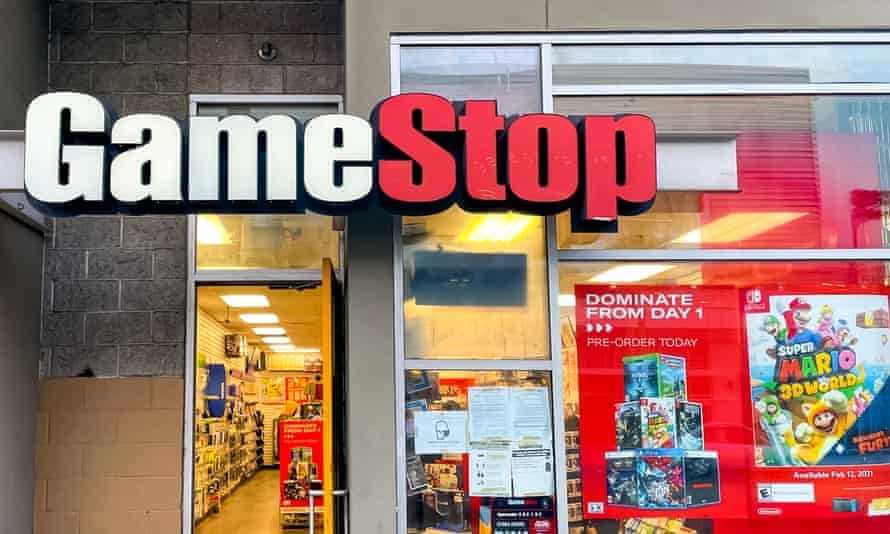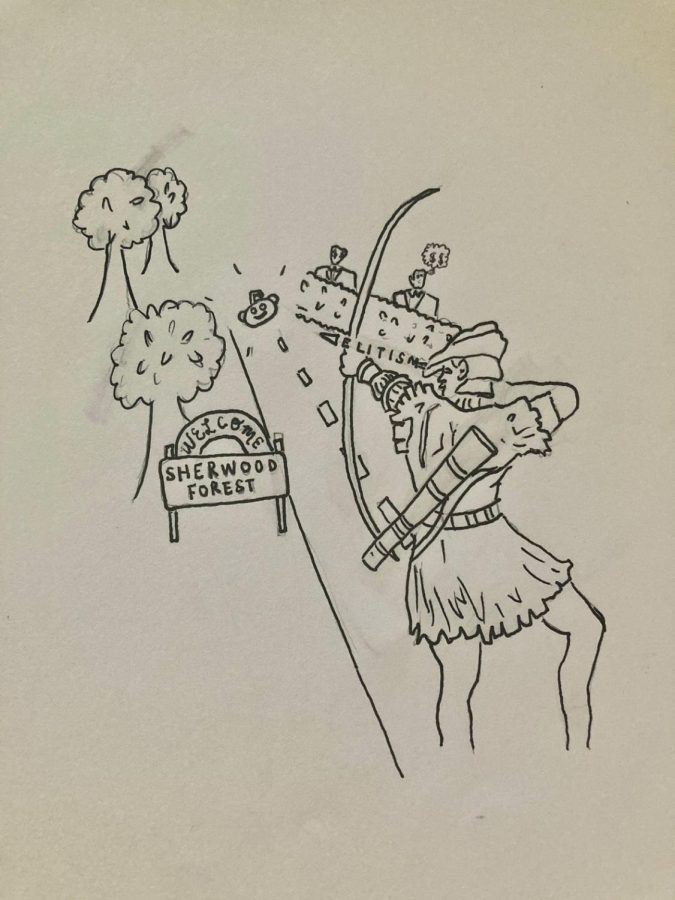Robinhood Gives Back to the Elite
January 29, 2021
GameStop. A company I never thought would be the center of a days-long conflict sparking conversation about the ethics of trading and the division between the financial elite and the common people. Here’s what you need to know.
While we may be infatuated with the company now, GameStop was a dying business. The gaming retailer is located mostly in malls, and with the help of the pandemic, both are expected to slowly go out of business. So how did this seemingly random company’s stock skyrocket 1700%?
 The answer is mostly as a joke. This is where the term “meme stock” comes in: it’s a stock that has just as much social interest as it does financial. Users on the subreddit r/WallStreetBets[1] wanted to pile into the stock to see how much they could move the market. There were also some technical factors, such as former Chewy CEO Ryan Cohen’s joining of the Board of Directors (which led people to think GameStop would revamp its business model and climb back up in stock). This also happens to be the perfect time for this phenomenon: an unprecedented number of people are trading during the pandemic, and with the availability of apps like Robinhood that allow trading for free, the barrier to entry has been eliminated.
The answer is mostly as a joke. This is where the term “meme stock” comes in: it’s a stock that has just as much social interest as it does financial. Users on the subreddit r/WallStreetBets[1] wanted to pile into the stock to see how much they could move the market. There were also some technical factors, such as former Chewy CEO Ryan Cohen’s joining of the Board of Directors (which led people to think GameStop would revamp its business model and climb back up in stock). This also happens to be the perfect time for this phenomenon: an unprecedented number of people are trading during the pandemic, and with the availability of apps like Robinhood that allow trading for free, the barrier to entry has been eliminated.
[2]Users on r/WallStreetBets used this to their advantage and all piled into the stock, making it skyrocket. This is not just a strange occurrence, but one of the first times we have seen those who are not big investors affect the market so drastically.
While the price of a GameStop (GME) stock was just around $18 earlier this month, it recently hit as high as $483, allowing one Reddit user to even pay off his student loans with the $23,504.45 he made. “I love you guys ?,” he posted, describing that “I never thought I would have paid this off so soon.”[3]
This angered big investors, not just because they were shocked by the unexpected rise in GameStop stock, but because it forced them into a corner they couldn’t get out of. Short-sellers (most of which are at hedge funds) are those who bet against a company. They predict that stocks like GameStop will drop in price, which was the logical conclusion because the business was dying. Short-sellers borrow a stock, sell it immediately, and then buy back and return the stock when it is much lower so they can earn a profit. They essentially borrow and sell when the price is high and buy it back and return when the price is low.
Except GameStop didn’t go down as they expected: it skyrocketed because of the Reddit users. This angered the short-sellers, because they are forced to buy back the stock at a much higher price to avoid further losses. This event is called a short squeeze, and it only drives up the stock even more, worsening the elite’s problem. This is part of the reason why the stock has risen so rapidly: the people who want it to fall are forced to drive it back up.
This isn’t the only volatile stock. Fueled by the same subreddit, people are piling into stocks like AMC (AMC), BlackBerry (BB), Express (EXPR), Bed Bath and Beyond (BBBY), and even Tootsie Roll (NYSE).
[4]However, the app which people had previously praised for allowing retail traders (regular people like us) to get involved with stocks for free has now banned new trades on these stocks. Whether it’s because of its possible involvement with a large investment fund or it is trying to protect individuals from taking dangerous risks, Robinhood is now going back on its name and protecting the elite while stopping the common people. Even worse, it has been hiding searches for these stocks and others like Castor Maritime (CTRM)[5]. Understandably, this has caused incredible outrage. Even though the cultures of Robinhood and r/WallStreetBets had long been tied together, some people on Reddit are calling for a class-action lawsuit.
Much of this controversy has to do with the involvement of regular individuals in what has historically been for the massively rich only. Short-sellers argue that people like us shouldn’t be able to make such massive changes in the stock market, but with the incredible amounts of money that hedge funds have (a single hedge fund has billions of dollars and they collectively have trillions), this is exactly what they do themselves. Short-sellers’ issue with this isn’t really that people are influencing the market, just that they are not the ones doing it.
Will we now see a new age of trading where retail traders have just as much influence as hedge funds? Or will we see restrictions on the ability for us to trade and a return to the money in the hands of the elite?
[1] https://www.reddit.com/r/wallstreetbets/
[2] https://www.theguardian.com/culture/2021/jan/28/what-is-gamestop-where-do-the-memes-come-in-and-who-is-winning-or-losing
[3] https://www.reddit.com/r/wallstreetbets/comments/l3aj4z/i_love_you_guys/
[4] https://www.techradar.com/news/robinhood-growth-is-floating-the-stock-market-despite-pandemic
[5] https://www.businessofbusiness.com/articles/robinhood-halts-trading-hides-searches-meme-stocks/



